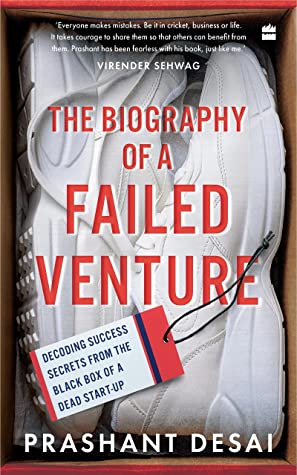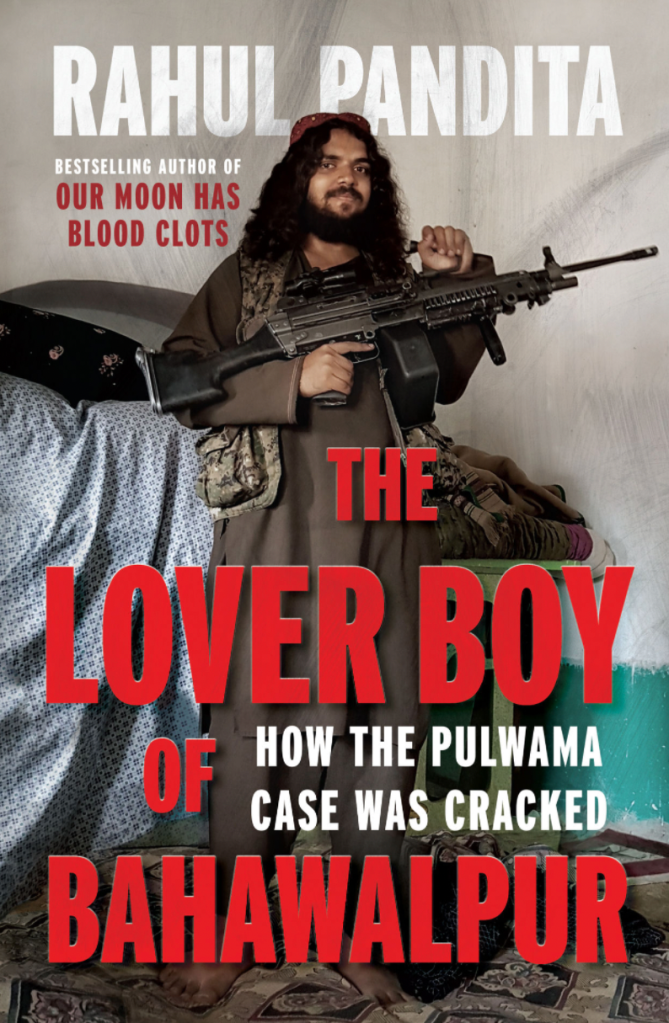
I had never heard of the brand called D:FY. Maybe because I was not in India when it was launched. Or maybe because I had no interest in sports shoe brands and running shoes back then. Or, as Prashant himself mentioned, “multi sport” shoes. This was the first time I came across a term called “multi sport”. Whenever I have searched for shoes on Amazon or Google, it is for “sports shoes”, or “running shoes”, or “vegan shoes”, or “football shoes” (just for the looks and not for playing) or “hiking shoes”. I have never searched for “multi sport” shoes. What does it even mean? Can I play football and cricket and tennis and go for running as well in the same shoe? And go for hiking as well? And this is one of the many reasons Prashant lists for the failure of marketing of his brand D:FY on Amazon.
I had never heard of Prashant before I picked up this book. He has accomplished what many of us can’t even think about. He was worked with the likes of Kishore Biyani and Rakesh Jhunjhunwala and many others. This is an honest, down-to-earth, no holds barred book about how he rose from an average studen to a nationwide rank holder in multiple accounting exams, and then become a stock picker (amongst other roles) at various firms and finally settled in Mumbai. He made multiple of crores but his hunger for more money led him to launch D:FY sports shoe brand, with the thinking being that there is nothing in India in the range of around 4000/- rupees for the average Indian buyer.
He writes in detail about how he went about pitching it to various people and investors across the board, got shoe designers from US to work for his shoes, got vendors from China, met the marketing agencies, and the Amazon and Flipkart/Myntra heads for a marketing deal, Farhan Akhtar and Ritesh S. for a stake, and so on and so forth.
Reading this book, one wonders about the amount of effort and sleepless nights an entrepreneur has to spend working on his business. The unforeseen challenges that seem to attack from all sides, and the checks and balances of luck often deserting you at the wrong time. We mostly hear of entrepreneurs on how they have secured Series A, B, C funding, how their valuations are in billions of dollars, how MAU and DAU metrics are in their favor for a sellout, but never do we hear from an entrepreneur who failed. Because they don’t want to share their sob story.
Prashant has been woefully and delightfully honest (and often brutally so) in this book about his own experiences and his learnings during this entrepreneurial journey. He lost more than 30 crore rupees of his personal wealth during the 2-3 years of D:FY and this book should be read by everyone who only looks at the successes of Zerodha, Nykaa, PayTM, Flipkart and others. For every venture that succeeds, I am sure there are hundreds of others which fail and never take off.
A highly recommended book for all general readers; there is not a single dull moment in this book!

